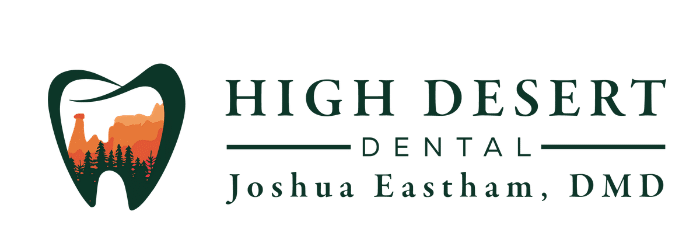Common Dental Emergencies and How to Handle Them

Emergency Dentist in Grand Junction: What to Do in a Dental Emergency

At High Desert Dental, we understand that dental emergencies can happen at any time, often when you least expect it. Whether it’s a knocked-out tooth, a severe toothache, or a broken dental appliance, knowing how to handle these situations until you can get to a dentist is crucial. If you’re experiencing any of the following dental emergencies, here’s a guide to help you manage them and ensure the best possible outcome.
1. Knocked-Out Tooth (Avulsed Tooth)
A knocked-out tooth is a common dental emergency that often occurs due to an accident or injury. The first step is to stay calm and act quickly. If possible, try to find the tooth and pick it up by the crown (the chewing surface), not the root. Rinse it gently with water, but avoid scrubbing it or using soap. If the tooth is still intact, try to place it back in the socket. If you’re unable to do this, store the tooth in a container of milk or saline solution to preserve it. Time is of the essence – get to the best dentist in Grand Junction, CO, as quickly as possible. The sooner you see a dentist, the higher the chances are of saving the tooth.
2. Severe Toothache
Tooth pain can range from mild discomfort to sharp, excruciating pain, and it’s often a sign of an underlying issue, such as a cavity, infection, or even a cracked tooth. If you’re experiencing severe tooth pain, rinse your mouth with warm water to clean it. Use dental floss to gently remove any food particles that may be lodged between your teeth. Applying a cold compress to the affected area can help reduce swelling and numb the pain temporarily. Over-the-counter pain relievers, such as ibuprofen, can provide some relief. However, it’s essential to see a dentist as soon as possible to identify the root cause and prevent further complications.
3. Cracked or Broken Tooth
A cracked or broken tooth can be a painful and distressing emergency. If you’ve chipped or cracked a tooth, rinse your mouth with warm water and apply a cold compress to reduce swelling. If the broken piece is sharp, you can use dental wax or a piece of sugar-free gum to cover it until you get to the dentist. If you experience pain, over-the-counter pain medication can help manage the discomfort. Avoid eating on the affected side until you visit the best dentist in Grand Junction, CO, who will assess the damage and determine whether a filling, crown, or other restorative procedure is necessary.
4. Loose or Lost Dental Fillings
Losing a dental filling can be an uncomfortable experience, as the cavity underneath may be exposed to air and food, leading to sensitivity and discomfort. If your filling comes loose, try to keep the area clean by gently rinsing your mouth with warm water. In some cases, you can temporarily seal the cavity with dental cement or sugar-free gum until you visit the dentist. It’s important to see a dentist as soon as possible to replace the filling and prevent further decay or infection.
5. Lost Crown or Bridge
If a dental crown or bridge falls out, it can leave the affected tooth vulnerable to damage and discomfort. If the crown or bridge is still intact, try to place it back over the tooth, using dental adhesive or dental cement temporarily. If this isn’t possible, store the crown or bridge in a safe place, and make an appointment with the best dentist in Grand Junction, CO, as soon as possible. Your dentist will assess the tooth and determine if the crown or bridge can be re-cemented or if a replacement is necessary.
6. Object Stuck Between Teeth
Sometimes, food particles or other debris can become stuck between your teeth, causing pain or discomfort. Start by gently flossing the area to remove the object. If flossing doesn’t work, you can try using an interdental brush or dental pick to dislodge the object. Avoid using sharp objects, as they may injure your gums or teeth. If you still can’t remove the object or if the area becomes painful, it’s time to visit the dentist for further assistance.
7. Soft Tissue Injury (Gums, Tongue, or Cheeks)
Soft tissue injuries to the gums, tongue, or cheeks can occur from an accident, sports injury, or even biting down too hard on food. If you experience a cut or tear, rinse your mouth with warm salt water to cleanse the area. Apply a cold compress to reduce swelling and control bleeding. If the bleeding doesn’t stop or if the injury is deep, seek emergency dental care immediately. Your dentist may need to stitch the wound and provide additional care to ensure proper healing.
8. Abscess or Swelling in the Mouth
An abscess is a bacterial infection that can occur at the root of a tooth or in the gums. It often results in swelling, redness, and severe pain. If left untreated, an abscess can spread and cause serious complications, including bone or tissue damage. If you notice swelling or pus in your mouth, or if you experience intense pain, contact the best dentist in Grand Junction, CO, immediately. Your dentist will drain the abscess, treat the infection with antibiotics, and address any underlying dental problems.
Contact Us
Dental emergencies can happen when you least expect them, but knowing how to handle them and seeking prompt treatment is key to minimizing damage and preserving your oral health. If you find yourself in need of emergency dental care, contact High Desert Dental immediately. Our team of experts is ready to provide you with the best care and ensure that you get back to smiling comfortably as soon as possible.
Remember, regular dental checkups can help prevent many dental emergencies from occurring. By staying proactive with your oral health, you can avoid many of these situations. Contact the best dentist in Grand Junction, CO, today to schedule your next visit!

